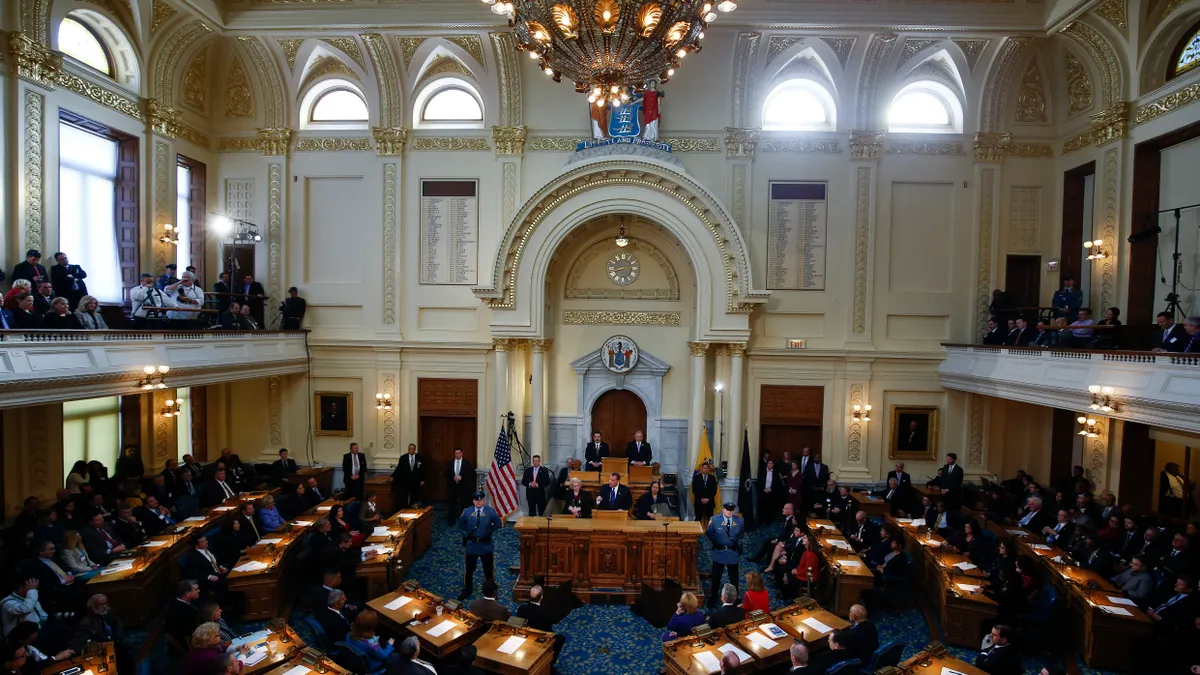To sustain success even amid a pandemic, John Murphy, CFO of the Coca-Cola Company, stressed the significance of the correlation between leadership position in a sector and profitability during a fireside chat at the MIT Sloan virtual CFO conference last month.
Murphy has been the corporation's CFO and executive vice president since March 2019. He has been with the company for over 30 years, serving in roles including international internal auditor, assistant to the CFO of Coca-Cola Japan, and president of Coca-Cola's Asia Pacific, and later South Latin, business groups. Over this time, he said he's become a student of the company's 130-year history.
"There's always been this dual set of objectives, to grow our business through refreshing the world, and making a difference in the communities that we operate," Murphy said. "I believe our franchise model has allowed us to do both. It gives us a natural advantage that we actually have local ownership, and local employment."
Scenario planning in overdrive
When it comes to mapping out financial scenarios, particularly in such uncertain economic conditions, Murphy begins with a "total understanding of the trends that are here to stay," versus the "fads or the blips, which will not."
"I also think the strategy game is an initiative game, increasingly," he added. "You've got to not get stuck in any given space, because the world is changing so quickly."
For instance, consumers want to drink a broader portfolio of beverages, and the pandemic won't change that, Murphy has found. "But we've got to keep the longer-term trends, and their implications on our business, in mind."
Case in point: If you're not already thinking about how you operate in a truly digital world, and how you're building out your capabilities to do so, you're going to get left behind, he said.
"I've become less and less of a fan of the term ‘scenario planning' in the last nine months, because I've discovered, in our case, it tends to be an exercise in sounding intelligent about the future," Murphy added. "Then you get flung into the world of COVID, and it becomes a much realer topic you have to manage. I think of it more as scenario management than scenario planning. And, in that regard, we have very much sharpened our approach to having Plan B, Plan C, and plan D available and implementable fairly quickly."
Instead of saying, here's a scenario, let's construct stuff around it, Murphy says "here's a scenario, how are we going to manage it? These are the potential threats that we'll have, and here are the decisions we will need to make by when, here's the implications that we'll have to how we allocate resources."
Updating the CFO role
Though Coca-Cola has been flung "a little bit further into the future than perhaps we would have liked," Murphy believes the role of the CFO has been in the process of morphing over the last several years.
"It's as much a business partnership and strategy role, in which I try to forge the broader agenda for the company, than the more traditional CFO role has been," he said. "It's a much more interesting and exciting role now."
Despite the reverberating shocks to the industry, Murphy says the beverage industry remains as competitive as ever, keeping him consistently on his toes.
"As far as competition, if you're not feeling the heat, you're doing something wrong," he said. "Being in an industry that's attractive to others, and being in markets with players giving you a good run for your money makes you better, not afraid."
As CFO in a competitive space, you have to be, at times, humble enough to recognize others can do things better than you can, Murphy said. "And you learn from that, and you try and do it better the next time."
Maintaining the competitive edge
Coca-Cola in particular is in an industry that's highly competitive in most parts of the world. "We think we have a system and a framework that allows us to win more often than not, but we don't win every day, and we don't win all the time," he said.
"Over many generations, competition has come from many different places. Many of the big retailers have their own beverage solutions now. I think the challenge for a company like ours is to continue providing better solutions to the consumer," he went on. "It's a game, but we're very much open to the challenges, and we have to keep our eyes and ears open to how the competitive environment is evolving over time and, and be willing to adapt appropriately."
The company's most valuable tool, Murphy said, is its global reach. "Our bottling system opened in China last year, which made our product available in almost a half a million more retail outlets," he pointed out. "You have to have the infrastructure, discipline and wherewithal to make it happen on a month-by-month basis. That's our franchise model's ultimate power."
Importance of a portfolio
The journey to Coca-Cola's current standing involves not only an understanding of the consumer, but an understanding of the economics associated with expanding and building out a portfolio, Murphy said.
Additionally, developing a broad beverage portfolio with the company's partners requires a very deep understanding of its end-to-end value chain, he said.
"The good news is that the overall portfolio equation works, but you have to be disciplined and pretty deliberate in your decision-making to build out that portfolio," Murphy said. "Some categories are more profitable than others. Over the last 30 years, we have found that the stronger your leadership position, the stronger the profitability equation is. Leaders tend to get a lion's share of the profits from the pool."
Consumer goods companies must fully grasp a product's life cycle, Murphy said. "Understanding what it takes to nurture and explore at the early stages. Understand how to graduate, and become a challenger in the category with the bigger players."
This could take 15 to 20 years, so having the discipline to keep a long-term perspective, while delivering in the short term, is the secret sauce, he said.
Murphy already refers to the pandemic as being a "catalyst for change," and presenting both a challenge and opportunity for companies in equal measure.
"We've been flung further and faster into the future than we would ever have imagined," he said. "One of the challenges is being able to quickly pivot to what the world will be like when it's back to normal. The opportunity is to get there faster than the others."
In Coca-Cola's world, Murphy believes work, life, and social habits will evolve. "I believe we'll still be social animals in a few years' time, and it's important to understand how that will be expressed, post-pandemic, when it comes to shopping," he said. "There are so many more products available to buy, and it's incumbent upon companies like ours to understand those options, and be able to adapt and build our value chain to fit into those new avenues to ultimately deliver to the consumer."
Philanthropic focus
As part of making a difference, Coca-Cola has maintained a strong commitment to education and to promoting opportunities, especially for less advantaged people, Murphy said. Since 1984, in the United States, the company has sponsored a program called the Coca-Cola Scholars Program, he said.
"Since then, we've sponsored a college education for about 6,300 high school students across the country. And each year, we have a graduation ceremony, and, quite often, the alumni come back to participate in the celebration," he said.
"Over the last three or four years, I've had the privilege of participating in this event, and it's just mind-boggling to see where these people have ended up in society. Some are in the industry, some are in the nonprofit world. It's just an example of how you can invest in students who otherwise would not have had those opportunities," Murphy said.
Leading a successful company starts with a very deep understanding of your consumer, and what he or she is looking for, and anticipating future trends, Murphy said.
"Over the last 20 to 25 years, that's moved [Coca-Cola] from essentially a single-brand company to what we call a ‘total beverage company,'" he said.




















